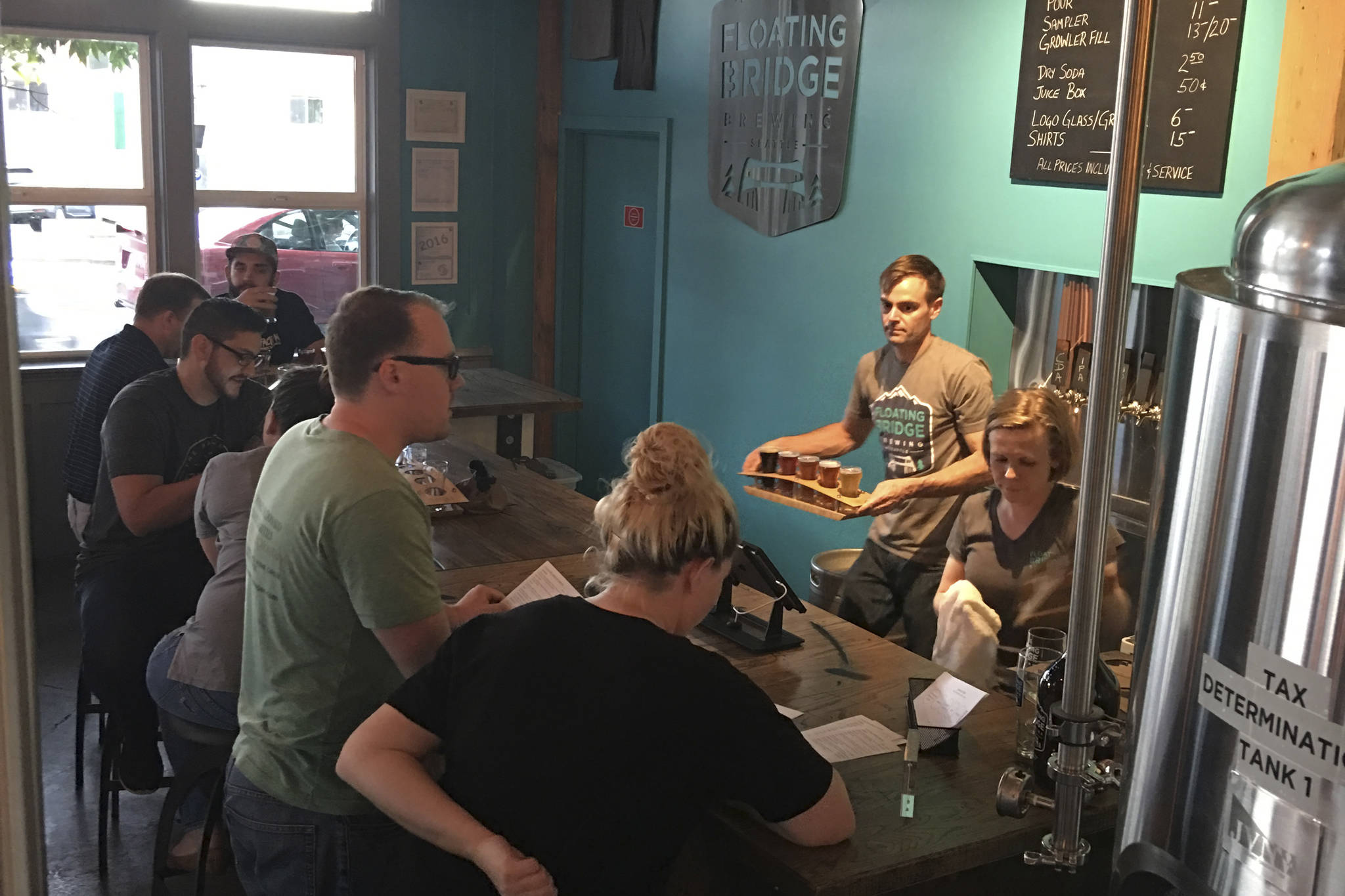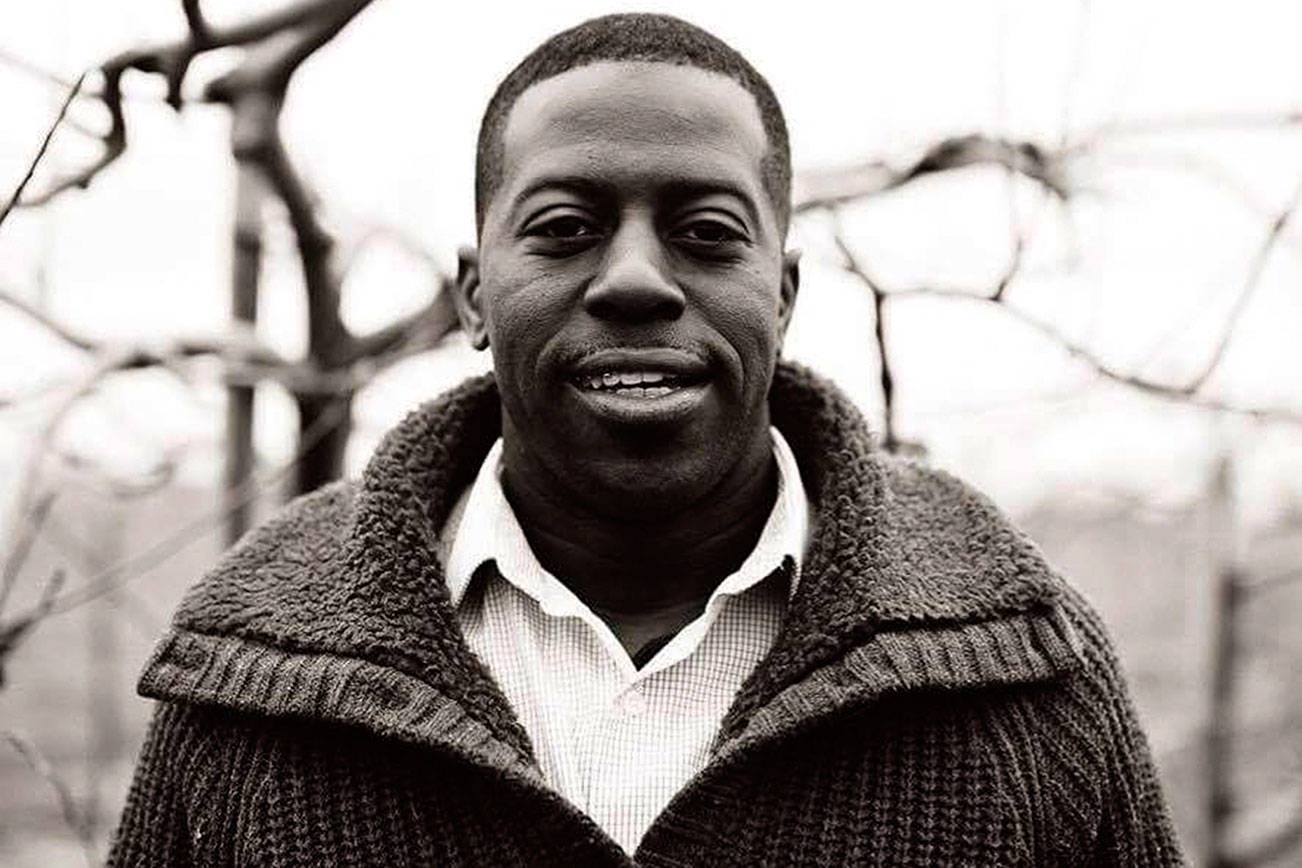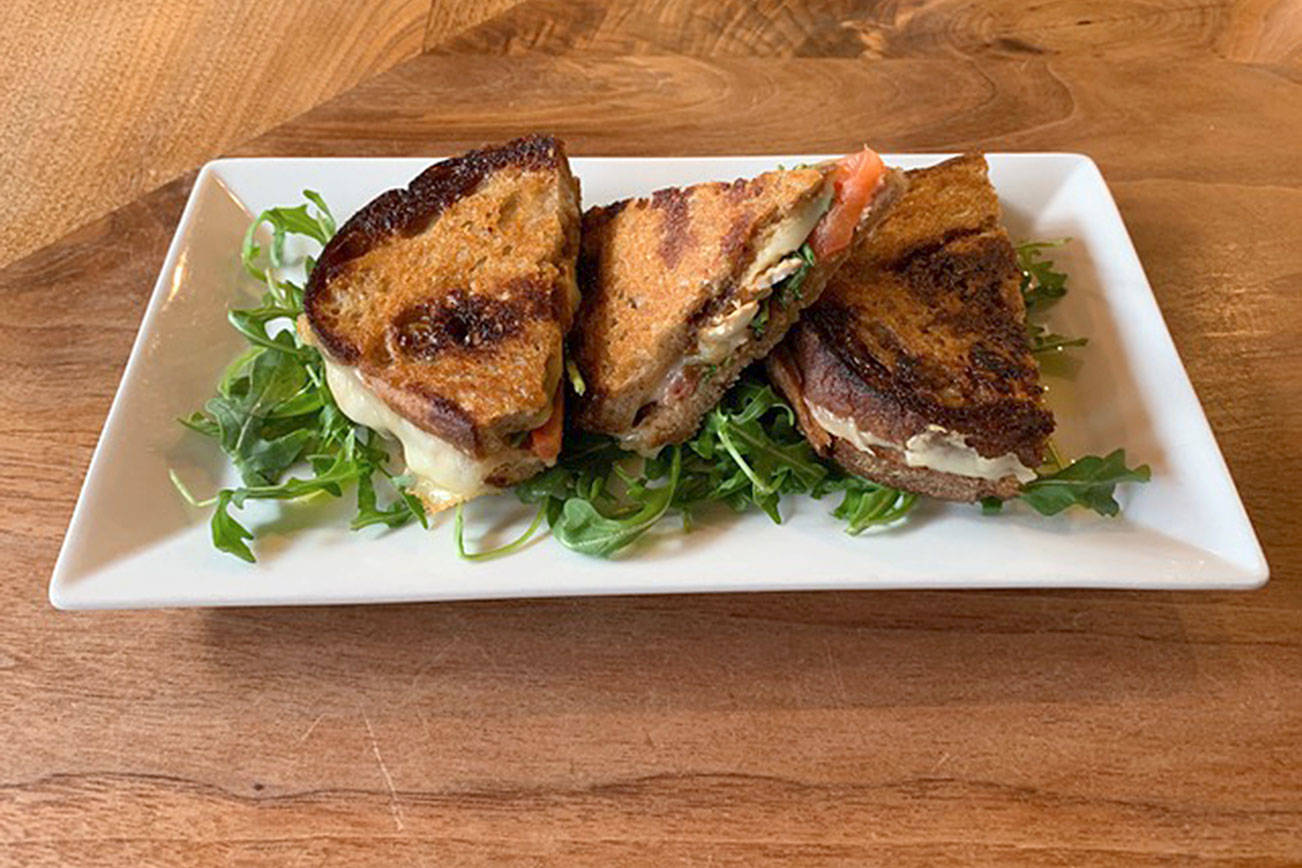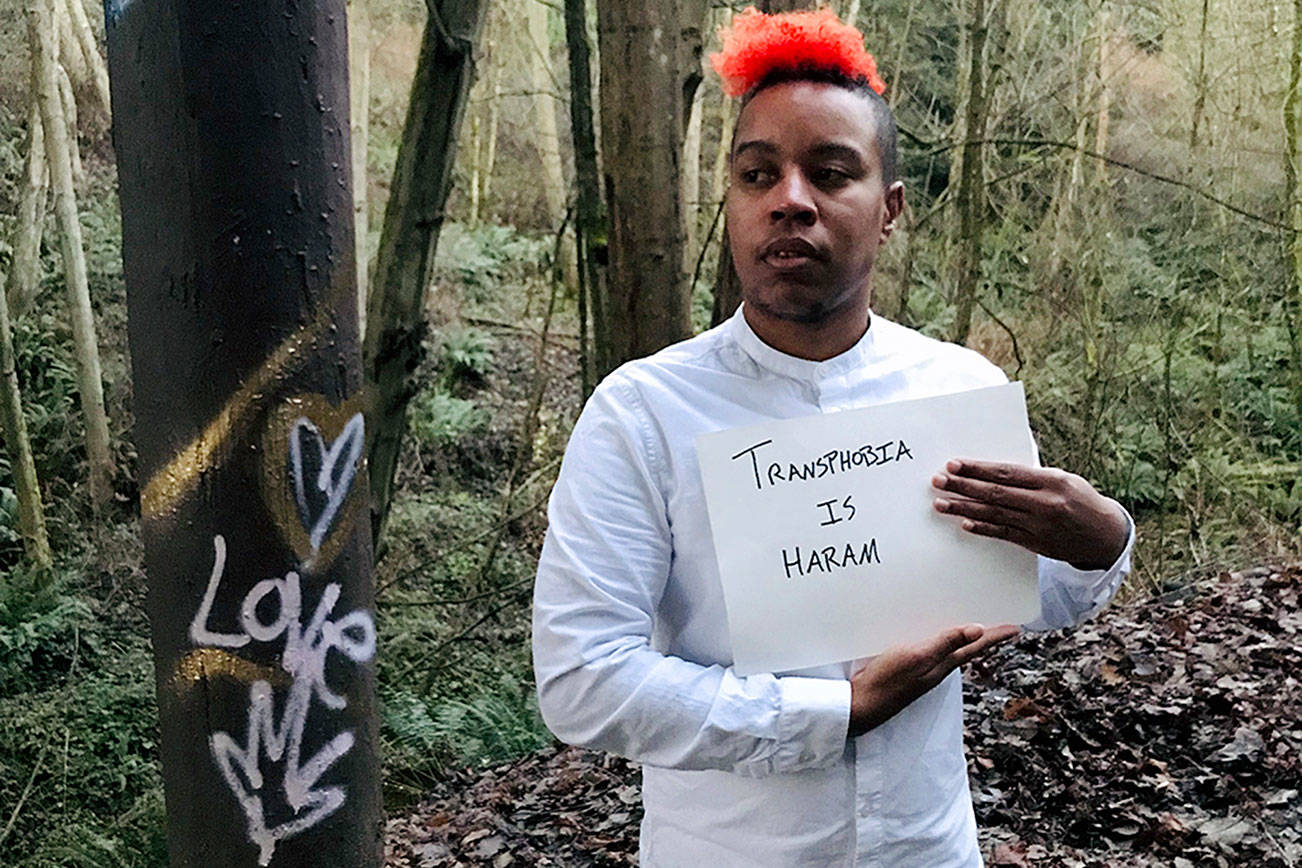The vast majority of breweries in the country, especially in the Northwest, are small businesses. And many of Seattle’s most beloved breweries are owned and operated by couples. But how does this work, exactly? What are the challenges of running a brewery with your partner? Is there a secret to success? Let’s find out!
Floating Bridge Brewing’s Dawn Perry and Russ Cornell opened their brewery in 2016, 10 years after marrying. “It’s funny,” says Dawn. “Russ and I were drinking craft beer on our first date. Long before we had any idea of starting a brewery.” Dawn says the two began home-brewing in 2007 in their kitchen. “It was good enough to try again,” she says of their first stout. The two soon transitioned to a larger system in their garage and, eventually, started their business. “We took baby steps,” Dawn says. “Trying to figure out how to make this idea into a reality.”
But manifesting a dream is not based on hope and intuition alone. There’s lots of gritty hard work that could create tensions and threaten relationships. “One of the things that works well,” Dawn explains, “is that we clearly divvy up the responsibilities. Russ is responsible for the brewing and the bulk of building out the recipes. I run the tasting room and manage wholesale distribution.”
The same goes for Mari and Will Kemper, who have been married since 1977 and opened Thomas Kemper Brewery with another couple in 1984. In 2008 they opened Chuckanut Brewery in Bellingham. “We have very different skill sets,” smiles Will. “For me to do what she’s good at doesn’t make sense, and for her to do what I do wouldn’t work either.”
Mari, a gregarious, detail-oriented person, says she’s noticed a great number of spouse-owned breweries sprouting up across the country. One reason, she postulates, is that brewing often begins in the home. And while the transition from home to storefront can be natural for many, Mari notes there are risks. “Our partnership, we’re very close,” she explains, “but I’ve also seen where breweries have split—like Dock Street Brewing in Philadelphia. Their brewery tore them apart because it was so challenging. I recommend couples don’t go lightly into this.”
But if it does work, then all the better for the loving couple. “Being in it together,” says Dawn, “the great thing is communication. It’s interesting to talk shop at home, because we both have a passion for it.” In fact, she notes, with their responsibilities at Floating Bridge divided so clearly, there are many days when she and her husband don’t see a lot of each other. “The downside is I don’t see as much of him,” Dawn says. “Often, there’s less time to see each other because we’ve been so efficient.”
But in the end, the work, if successful, feels amazing, the brewers say, if for no other reason than they’ve chosen their working partners. “We knew what we were getting into,” smiles Dawn. “That’s for sure.”
beerhunting@seattleweekly.com








